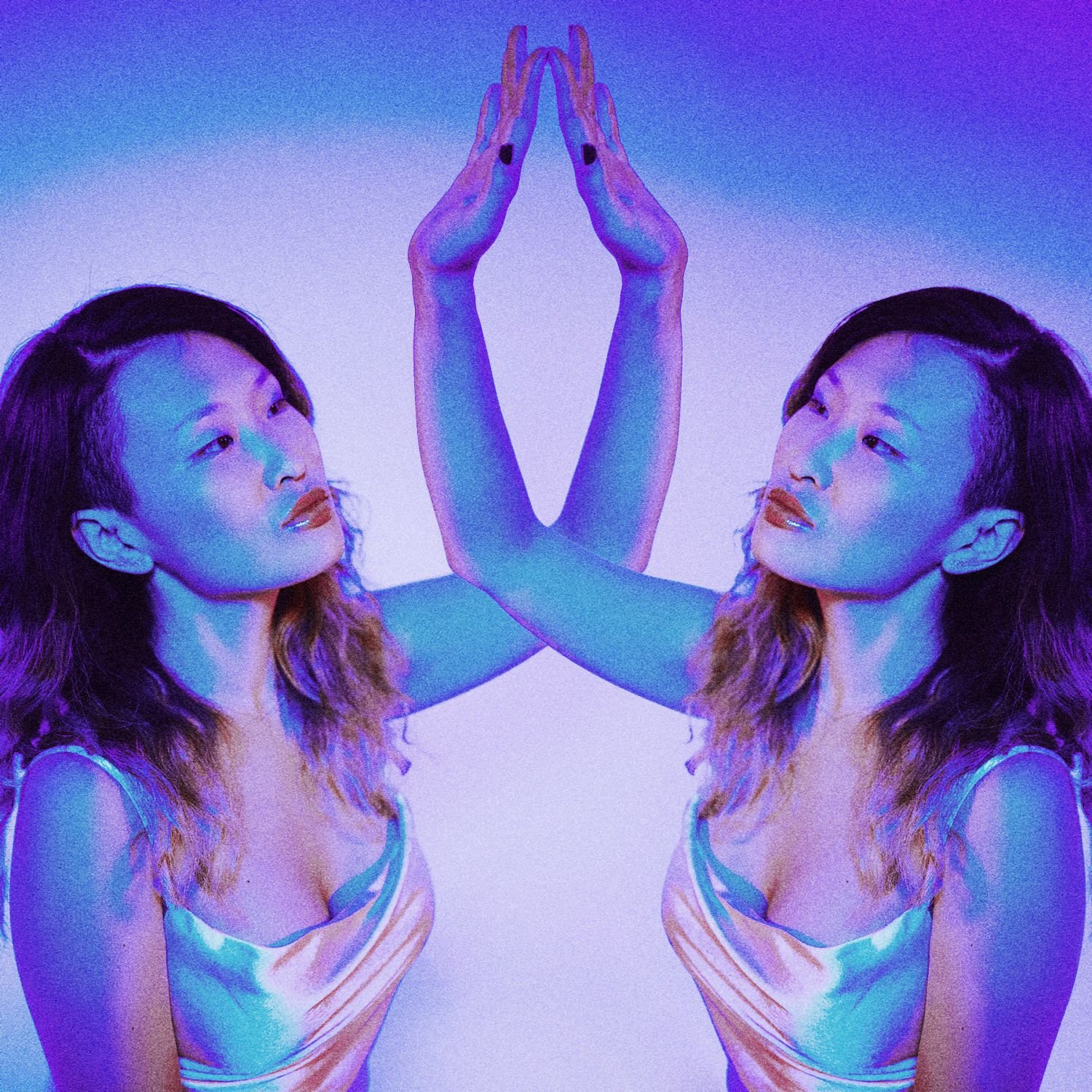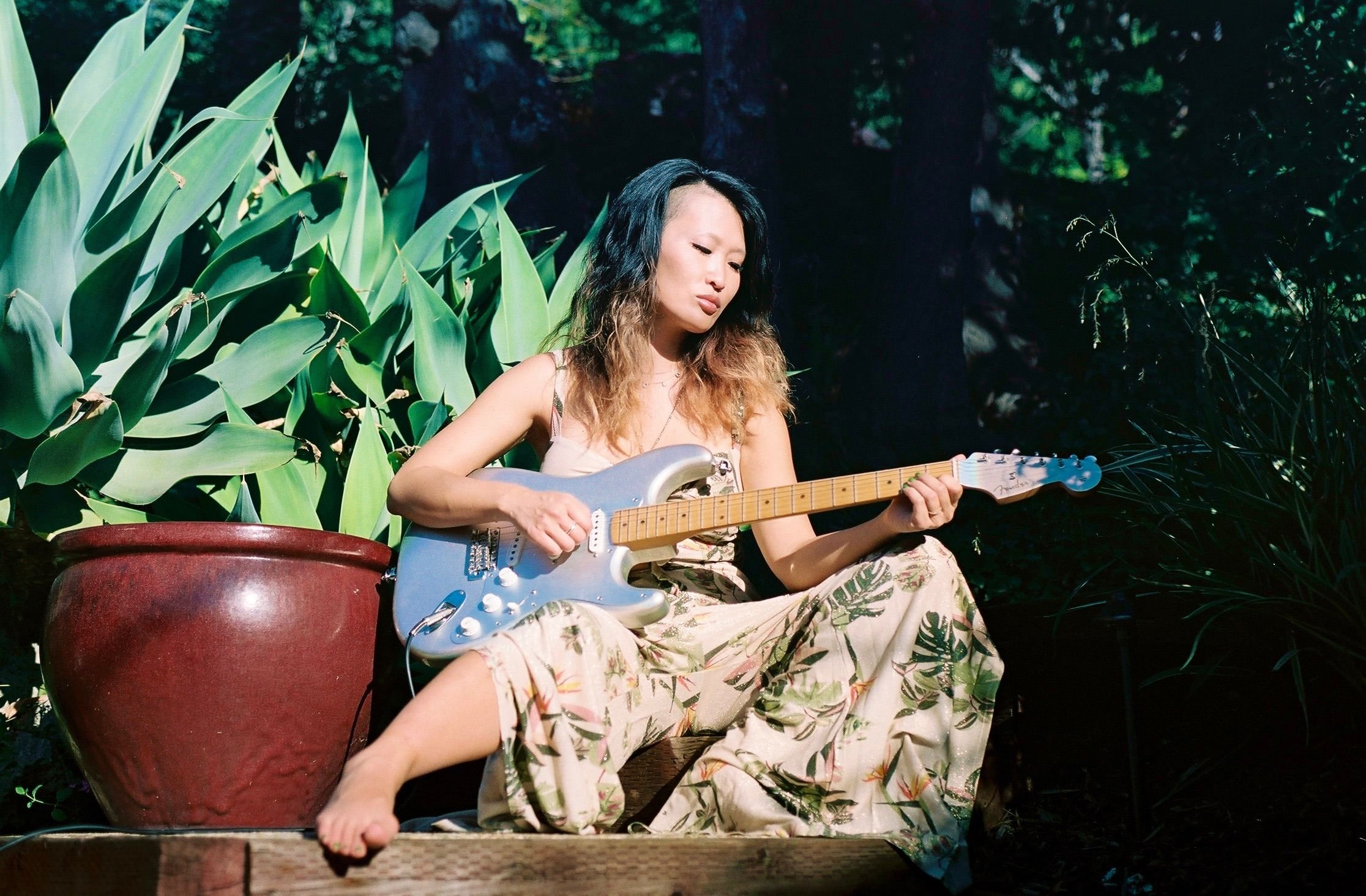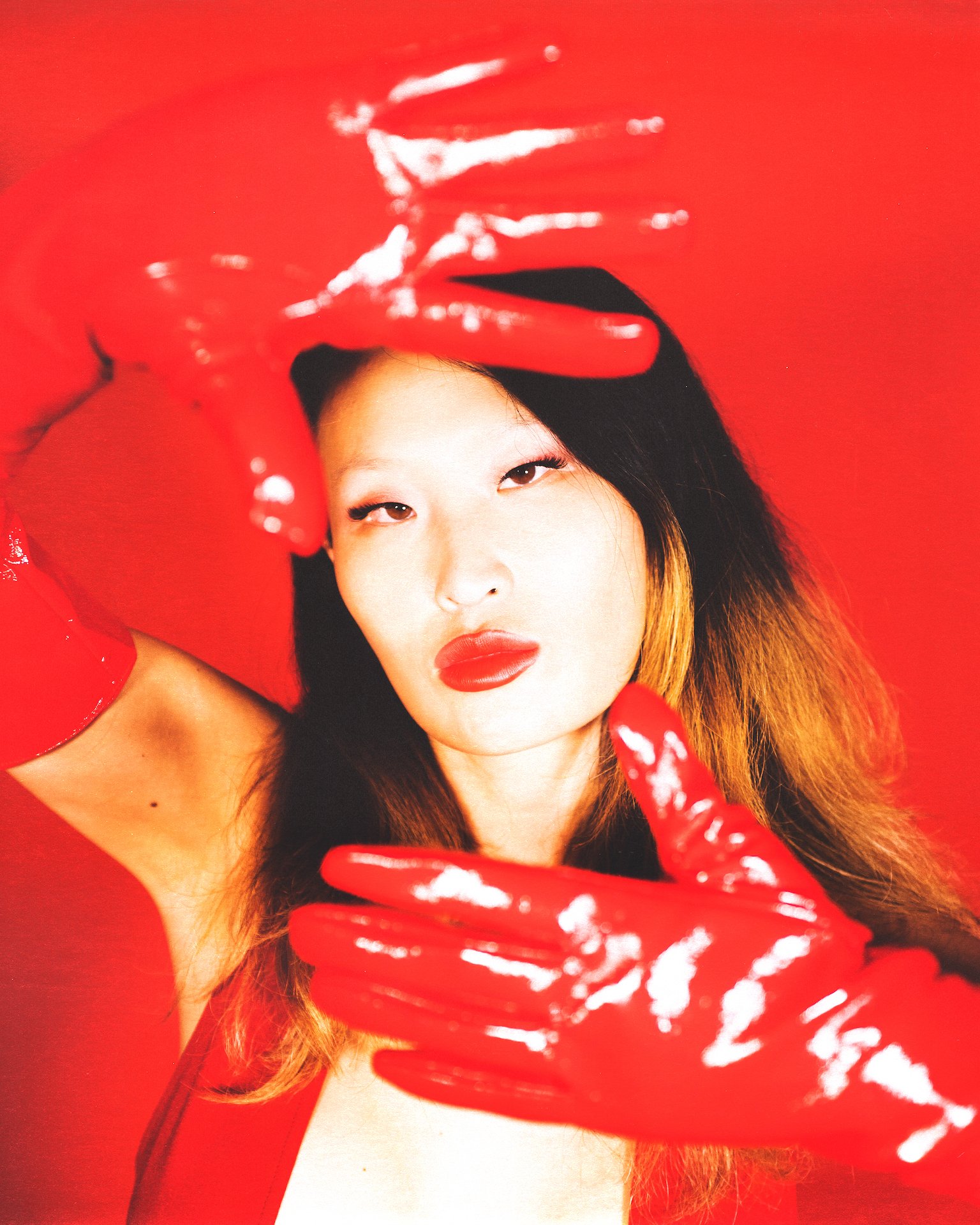by alex grainger
photo courtesy of nolo grace
Nolo Grace’s latest release “Winter Blue” is a time capsule to an uncertain time during the pandemic. The self-produced single was crafted in the early morning hours where she would discover and grow into her own voice and sound as a musician. The dreamy electronic song takes us into her world of searching for answers in a time where she was lost in her own mind. “Winter Blue” leads with the message of embracing your emotions and the choice we have when approaching those emotions. Read more about Nolo Grace and “Winter Blue” below!
Can you tell us what “Winter Blue” is about?
Nolo: “‘Winter Blue’ is about my inner struggle for answers during a period when I was feeling particularly isolated and lost during the pandemic. At the time, I knew how important it was to have compassion for the darker, more shadowy sides of myself, but I was having a hard time getting there. I was twisted up in my inner dialogue — battling how I felt vs. how I thought I should feel — and all the ruminating patterns that go with that. The musical journey and repetition reflect the meandering path of my own mind.”
You refer to “Winter Blue” as a time capsule, why?
Nolo: ”It was a period of time that felt very interstitial and transitional. It feels nostalgic thinking about those months. I had moved in with my boyfriend as LA went on lockdown, and we decided on a whim to get married. His second bedroom became my makeshift studio and office. For about six months, I would start my days making beats at 6am in that room. I was still pretty new to Ableton and was learning to produce. It was a precious time for me. It was very much a solo, exploratory endeavor. I hadn’t even released any music yet, so I had no conception of what the process of sharing music with the outside world would be like. I didn’t know how the pandemic would even develop. So ‘Winter Blue’ represents the music, thoughts, and mood of that little window of time. Two months later, we closed on a house in Silver Lake, moved in literally the next day, and then I started releasing music a few months after that.”
What was your creative process like for your self-produced single? How is it different working on your own as opposed to collaborating with other artists like you did on your release with Sean Kingston?
Nolo: ”The creative process was much more straightforward working on this song. The process felt very meditative and intuitive because there wasn’t a need to communicate my ideas to another person. It also has probably 30 more vocal layers than it would have if I were working with someone else. I honestly felt a bit shy releasing it for those reasons, but I also know that it was an important step to break through those feelings. Collaborating with other artists, producers, and writers is a great experience, and it can enrich the song. There’s a purity of intention that persists when creating something entirely on your own though.”
Do you have a favorite lyric in your single that is especially meaningful?
Nolo: ”I think it’s probably, ‘I’m all twisted up. Can I turn it around? Spinning upside down. Where’s my gravity now?’”
Is there a specific message you are sending to listeners of “Winter Blue?”
Nolo: ”Well, I think I want people to feel that they can embrace the darker emotions and experience healing. I want people to realize how powerful the mind and our belief systems are, and that we have a choice. When you’re sitting with a lot of darkness and confusion, your mind can lead you to believe and assume the worst. The negative emotions can become an addictive cycle. The key is to love and have compassion for those feelings and experiences within yourself while realizing you have the power to choose and change your beliefs and circumstances. No matter how difficult and impossible things seem, we do have the power to create change in our lives.”
You made your musical debut last year, how has this past year been?
Nolo: ”It’s been an incredible year with a lot of personal realization and growth. Making and releasing music has been a big part of that, and I feel grateful for the expansion. I’ve made some great friends and stepped into a space of reinvention and possibility. It’s interesting, but by exploring my artistry in this way, I’ve found that it’s enabled me to see a bigger picture for how I can have a broader positive impact on the world.”
How would you describe your sound? How has it developed since your debut a year ago?
Nolo: ”Well, I think it’s evolving, so I’m curious to see where it will go. I would say that it’s dreamy and message-driven, influenced by various electronic, hip hop, and pop genres. Recently, I’ve been drawn to a more acoustic sound, so it’s evolving.”
Do you think you’ve learned any valuable lessons as an emerging artist from the pandemic? How, if at all, has this translated into your music or creative process?
Nolo: “Honestly, I think the most valuable lesson I’ve internalized is learning to stay true to my vision and caring less about the opinions of other people. I experienced disappointment over the past year, and it came from different sources. The root of all these issues, however, was me not having the confidence to fully own the vision for my art. My journey as an emerging artist has been about finding my voice in so many areas of my life, so that has been both the biggest lesson and the greatest gift.”
photo courtesy of nolo grace
You’ve had an incredibly successful career thus far from Wall Street to co-founding PARASOL to your music career, but how did you get here? How have all your experiences influenced the music you create?
Nolo: ”It hasn’t been a straightforward path, but it has been necessary. Just as it’s articulated in my song ‘Winter Blue,’ I’ve gotten tangled up in the search for answers. It’s both a blessing and a curse, but I’ve always been a person who wants to do everything. I’ve often been criticized for doing too much, and it can get overwhelming at times. For me, music was always a dream, but I never pursued it seriously because I had so much fear. It meant too much to me, so I decided to give it up altogether. I went into the non-profit world and then into international development and then business. All through this period, I had the nagging voice inside around what I truly wanted to do, which was music. As the years passed, that voice never went away. There was an ever-present daily undercurrent of, ‘what if I had?’ and ‘could I?’ I have no regrets about it though because it had to unfold this way. I believe having the business, technology, and international development background is a big part of what I will do in the future. My new organization PARASOL is about integrating these sides of myself and bringing the creative, business, and wellness communities together.”
What’s next for you?
Nolo: ”I’m excited about the releases I have planned for this year, and I have a music video for ‘Winter Blue’ coming out in a few weeks. The director, Dani Okon, created multiple animated worlds for ‘Winter Blue.’ I can’t wait to share it. I also have a new band I started with my husband called ‘Grace & Moji.’ We’re working on an album, which we will release later this year. Beyond my personal music projects, I’m really passionate about the mission of PARASOL and growing the community of conscious creatives, entrepreneurs, and change makers to create a better world. Given my background and everything I’ve struggled with, I feel passionate about creating a safe space and community for creatives to share and be supported.”



